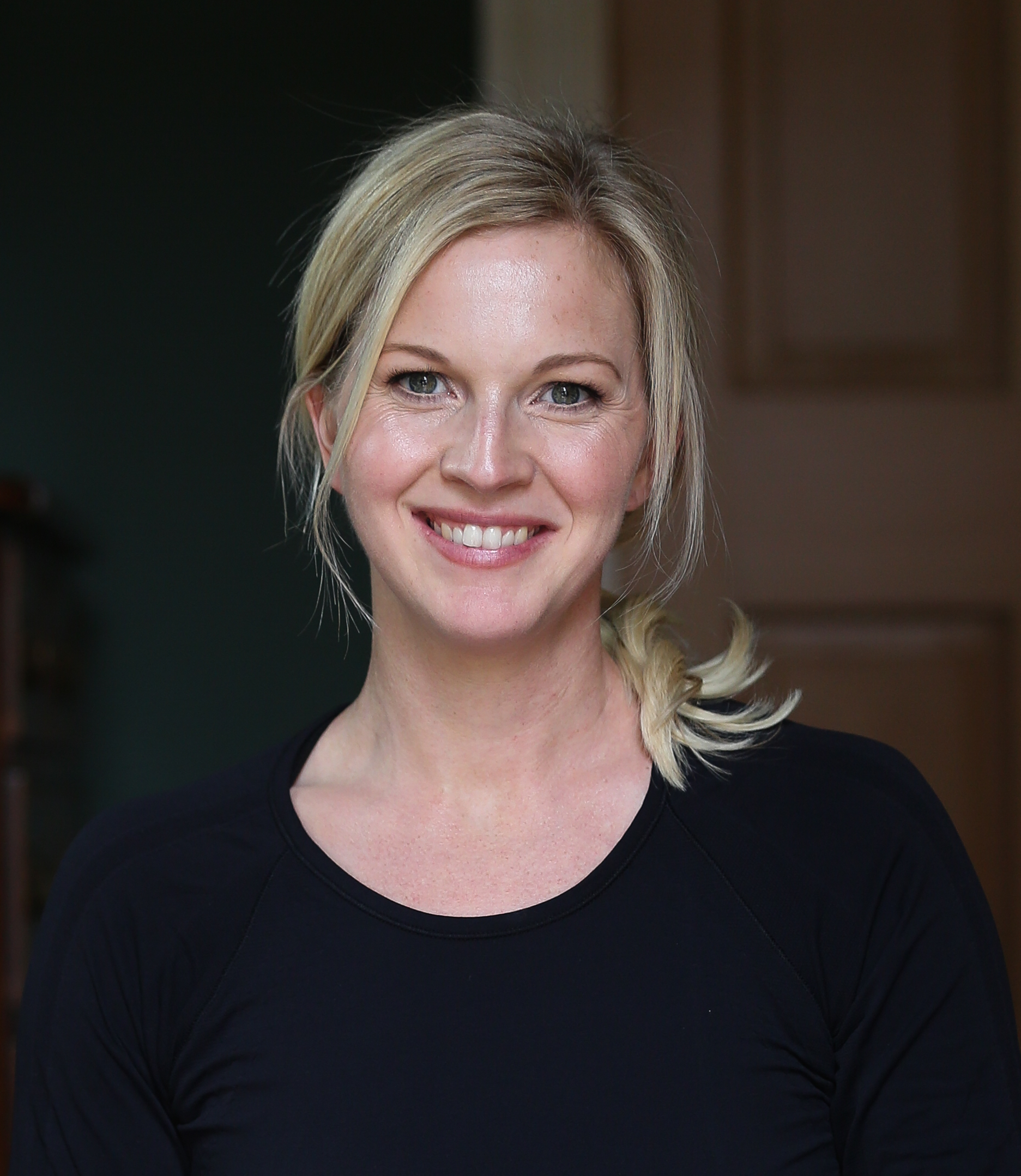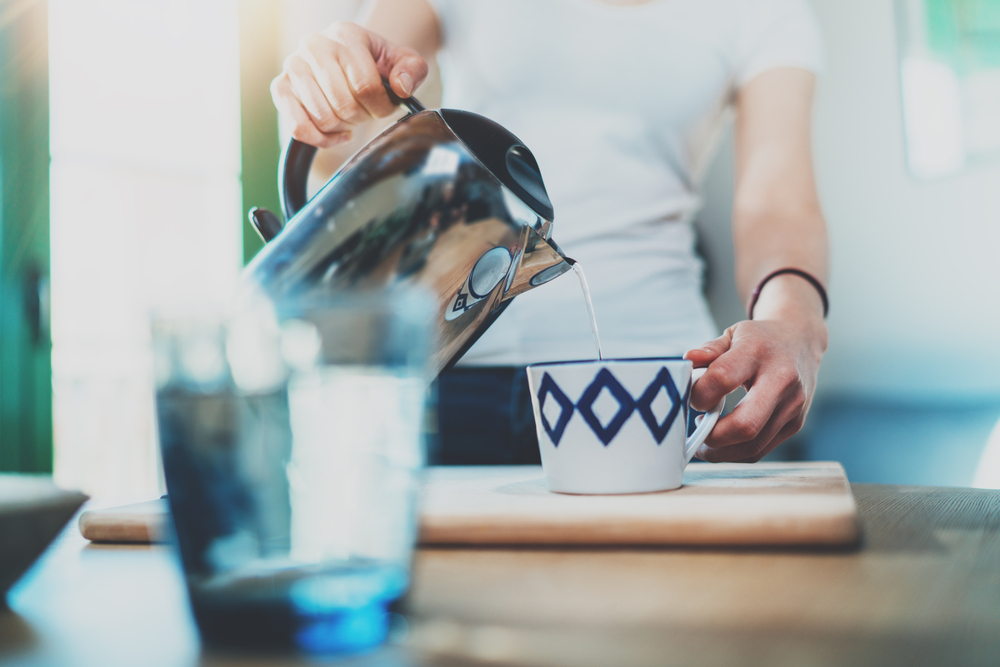I started drinking coffee during a particularly mind-numbing internship that involved mostly adding things into a database. Once I started the habit, I was hooked.
Coffee and I have been inseparable for nearly two decades.
Over the years, I’ve wanted to experiment with how my body would function without the daily caffeine boost but each time I’d try, I would feel achy, awful, and so depleted of energy I felt like I couldn’t function. I concluded that I couldn’t live without coffee, and nothing would ever make me give it up. A friend even bought me a mug that said “All I want to do is drink coffee, build my empire and sleep” so you could say my identity as a coffee person was pretty strong. I wouldn’t give up my cup of Joe easily.
But it was time to reevaluate.
Flash forward to having an unsightly red rash on my face that my dermatologist said could be aggravated by many things, including drinking alcohol and caffeinated hot beverages. Since I don’t drink alcohol (see my story here), I felt like my morning cup of coffee might be one of the culprits contributing to this flare up on my face.
Given the fact that this face rash, called Rosacea, was getting more unsightly and harder to cover up, I was willing to do anything to get it under control, including taking oral antibiotics, a prescription cream, and experimenting with forgoing my morning cup of coffee.
A short term experiment was in order.
This time I was more determined than ever before to quit, and see what could happen. I read online that it takes two to nine days to get through the withdrawal symptoms of caffeine, so I decided I’d need to give up coffee for 14 days as an experiment. I wanted to see how I felt once I’d pushed through the caffeine withdrawal symptoms and come out the other side. I’d read that your body starts to regulate your energy levels better once you don’t rely on caffeine, but I had never made it that far.
For the few days before I officially started my caffeine detox, I weaned down my intake because I read it’s easier to gradually cut down your caffeine versus going cold turkey.
I’m not sure if it helped though because I felt awful the very first day without caffeine. I needed to take an Aleve for my headache, and ultimately had to lay down and nap in the afternoon because I was too exhausted to function.
Things got ugly quickly with zero caffeine in my system.
Day two was just as bad, and I started to wonder if being under-caffeinated and being an entrepreneur were compatible. I kid you not, I worried if I’d ever be able to create and launch online courses, write my email newsletters, and take care of all the tasks required to keep a household with two kids running smoothly. My energy was zapped, and so was my “task-master” energy.
It was much harder than I thought it would be.
In the beginning, practicing self-compassion was critical because I felt quite worthless, unable to function at my peak performance let alone get anything done. So much of my identity was wrapped around “doing” and “achieving” that I didn’t feel like myself in those first few days, and that was really hard.
If you’re a person who has trouble not going to work even when you’re sick, you’ll probably have these same feelings come up. I’m warning you here so you know it’s ok to have these feelings – and to feel them fully – as a part of this process. You will make it through.
I needed to call for reinforcements and take a gentler approach.
In my more self-compassionate moments, I told myself “I’m doing something hard right now, something that less than 10% of Americans do, so it’s natural that this is uncomfortable. Even if I’m making this choice to not have caffeine, I can still have compassion for my body that is aching and tired right now. Maybe my body is telling me it doesn’t like being artificially “hyped” up on stimulants every day, and now I’m finally listening.”
Things started looking up once I made it to day three.
By day three, I started to feel better and the symptoms of caffeine withdrawal subsided. I started sleeping better at night and although I was still tired when I woke up in the morning, I wasn’t any more tired than usual. I was going to need to get more comfortable with that “groggy and tired” feeling since I could no longer mask it with caffeine. Getting out of bed was a little harder when I didn’t have that warm cup of coffee to look forward to. But having a cup of ginger tea each morning easily took its place.
I also started doing a seven minute workout routine in the morning to help wake me up naturally. I found that this quick and effective workout did as much to wake me up as my old cup of coffee. And I started to look forward to this natural energy boosting process that also flooded feel good endorphins into my bloodstream.
A surprise benefit emerged.
What I didn’t expect was that my anxiety levels would go to practically zero – immediately. All of the symptoms I associated with anxiety went away by day three: worried and racing thoughts, a general feeling of being on edge, and near constant digestive issues. All gone overnight. This was the unexpected surprise, after a lifetime of over-functioning in the anxiety department.
Although I started this coffee detox for vanity reasons, I’m sticking with it because it makes me feel so much better and less anxious.
This caffeine detox turned out to be my single biggest life improvement of the year.
And I’ve had a year with a lot of growth including running a marathon and getting published in the New York Times for the first time. But I’m still not sure if I could have pushed through those challenging first few days if it weren’t for that terrible rash.
Although, it will be hard and uncomfortable, I invite you to challenge yourself and try to go caffeine free for 14 days.
Would it be worth it to see if your anxiety diminishes significantly without being hyped on caffeine? Would it be worth it to see if you feel better and calmer? Would it be worth it to prove to yourself that you can do hard things and follow through?
If you want to experiment and quit coffee & caffeine too, here are eight tips to keep in mind.
1. Stick it out the entire 14 days.
2. Avoid all caffeine, not just coffee. Did you know decaf coffee still has caffeine in it? Now you do. Read labels.
3. Grab some herbal tea so you have a warm reward in the morning. I personally like Ginger.
4. Start over the weekend, so you can sleep as much as you need and take naps throughout the first few days. If you can do your caffeine detox while on vacation, you’ll be able to sleep as much as you need to.
5. Replace your morning cup of coffee with a short workout to help wake up your body naturally. I do a few mountain climbers, pushups, jumping jacks, etc. in my pajamas to get the endorphins flowing.
6. Remember your why when things get tough. Are you detoxing to see if it helps lower your anxiety levels? Are you doing it to prove to yourself you can do hard things and build resilience?
7. Practice self-compassion and speak kindly to yourself, saying this is hard and I’m proud of myself for attempting this. Anyone giving up caffeine would be having a hard time. May I be kind to myself and give myself the compassion I need. Or you can try this guided meditation to boost your self-compassion.
8. Reframe your experience and remind yourself how awesome it is that you’re doing something that only approximately 10% of Americans do, which is not to consume caffeine.
If you’re addicted to your caffeine fix and this seems impossible, trust me, it seemed impossible to me at first too. But I know since you got this far you’re at least a little curious, so give yourself permission to do a short term experiment and see how it feels for you.
Follow us here and subscribe here for all the latest news on how you can keep Thriving.
Stay up to date or catch-up on all our podcasts with Arianna Huffington here.


